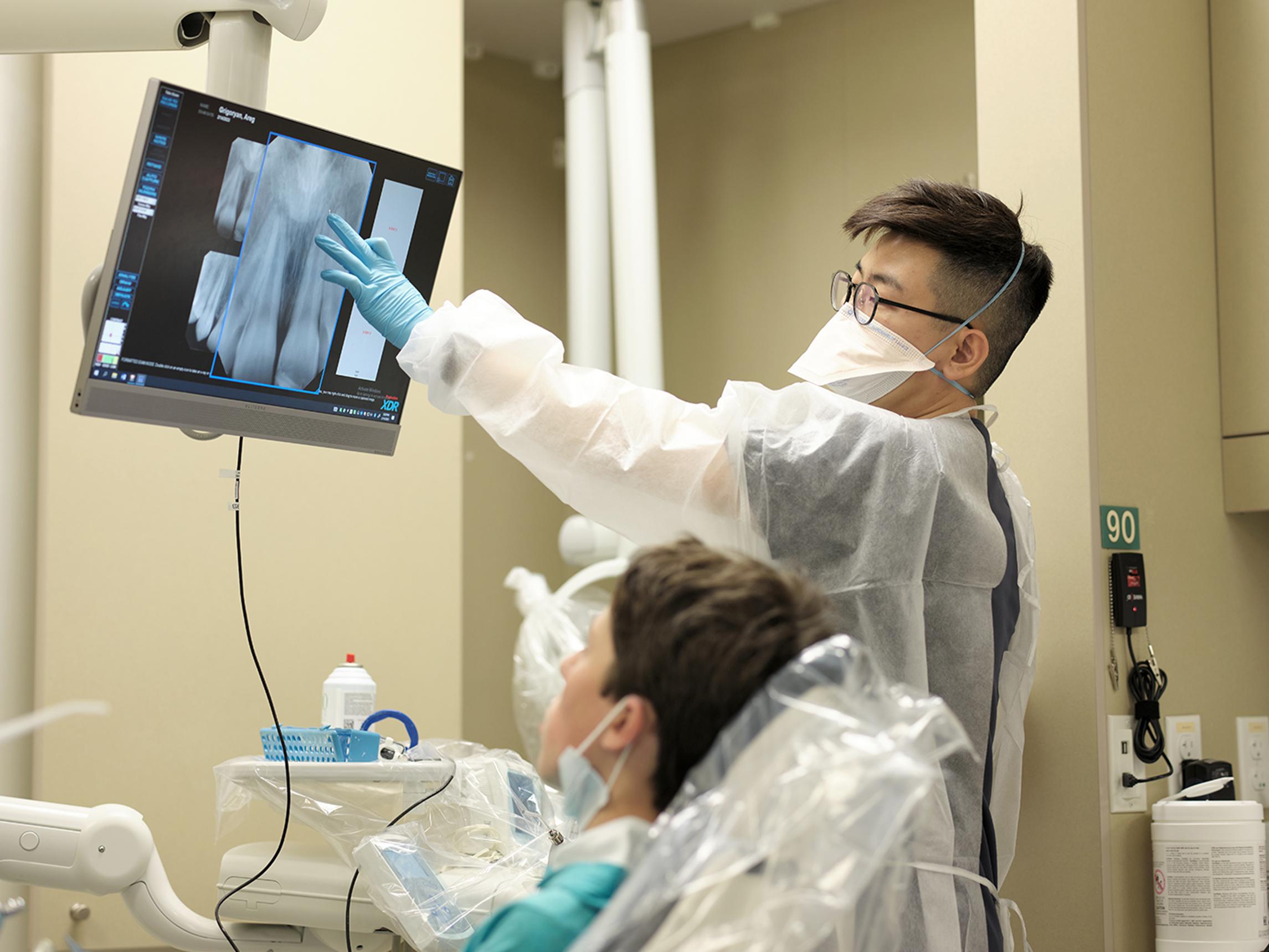An Overview to Typical Oral Conditions That Need a Dental professional's Care
Recognizing the range of dental problems that necessitate expert treatment is paramount for preserving ideal dental wellness. Toothaches, as an example, can be symptomatic of serious problems such as dental caries, cracked teeth, or abscesses, each requiring certain treatments like dental fillings or origin canals. Gum tissue disease, from the beginning of gingivitis to a lot more extreme periodontitis, emphasizes the importance of regular dental check-ups and cleanings. Impacted wisdom teeth and jaw conditions can present considerable pain and complications. Guaranteeing timely check outs to the dental practitioner can mitigate these concerns properly, however what precisely are the therapies and indicators included?
Toothaches
Toothaches are a typical dental problem that can vary from moderate discomfort to severe discomfort, frequently indicating a hidden problem that requires specialist focus. This pain can originate from a range of sources, consisting of tooth decays, fractured or fractured teeth, and dental abscesses. Each of these conditions postures considerable risks if left untreated, possibly resulting in more extreme issues.
Dental dental caries, likewise understood as caries, are created by the accumulation of plaque that wears down tooth enamel, leading to holes or pits in the affected teeth. Abscesses are unpleasant infections at the root of a tooth or between the gum tissue and a tooth, usually resulting from extreme degeneration or without treatment cavities.
Reliable treatment of toothaches entails attending to the root reason. This may consist of fillings for tooth cavities, crowns for broken teeth, or origin canals and antibiotics for abscesses. Very early intervention by a dental professional can stop further damage and relieve pain, making certain ideal dental health.
Gum Tissue Disease
Periodontal condition, a prevalent yet usually neglected oral problem, manifests with swelling and infection of the gums and sustaining cells. This condition mainly takes place in two phases: gingivitis and periodontitis. Gingivitis, the milder form, provides with signs such as red, puffy gums that may hemorrhage conveniently during brushing or flossing. If left without treatment, gingivitis can progress to periodontitis, a much more serious kind characterized by the damage of the sustaining bone and connective cells, inevitably resulting in missing teeth.
The primary reason for periodontal condition is microbial plaque, a sticky, anemic movie that constantly forms on teeth. Poor oral health, smoking cigarettes, genetic predisposition, and certain clinical problems, such as diabetes mellitus, can exacerbate the risk of developing gum disease. Normal oral examinations are vital for very early detection and administration of this condition.
Therapy for gum tissue illness ranges from professional oral cleansing and scaling to more advanced treatments like origin planing and gum surgical treatment, depending upon the extent. Keeping great oral health techniques, including brushing two times daily, flossing, and utilizing an antiseptic mouth wash, can dramatically decrease the risk of gum tissue illness and promote much healthier periodontals.
Cavities
Cavities, likewise known as cavities, are an usual oral problem identified by the destruction of tooth enamel as a result of acid-producing bacteria in the mouth. These bacteria thrive on sugars and starches from food and beverages, generating acids that slowly erode the enamel, bring about tooth cavity formation.
Early-stage dental caries might disappoint signs and symptoms, but as they proceed, they can cause tooth pain, sensitivity to chilly or warm, visible holes or pits in the teeth, and discoloration. If left neglected, dental caries can penetrate deeper layers of the tooth, possibly resulting in serious discomfort, infection, and even missing teeth.
Avoiding dental caries entails a combination of great dental hygiene practices and nutritional behaviors. Routine brushing with fluoride tooth paste, flossing, and regular dental examinations are important. Dental experts may likewise advise extra preventive procedures, such as fluoride therapies and dental sealants, to shield teeth from decay.
Small dental caries can be resolved with oral fillings, which bring back the tooth's structure. Much more advanced cases might call for crowns or even root canal therapy if the decay has actually gotten to the tooth's pulp.

Impacted Wisdom Teeth
Influenced knowledge teeth are a widespread dental problem that takes place when the 3rd molars, typically described as knowledge teeth, fail to fully emerge or straighten properly within the mouth. This condition commonly results from not enough room in the jaw or an unusual growth angle of the teeth. Affected knowledge teeth can bring about a variety of problems, including discomfort, damages, and infection to surrounding teeth.
When wisdom teeth end up being affected, they are usually partially erupted or remain entirely below the gum line. This partial eruption can create a pathway for bacteria to get in the gum tissues, bring about infections that show up as swelling, discomfort, and also high temperature. Furthermore, affected wisdom teeth can put in pressure on neighboring teeth, potentially triggering crowding or shifting.
An extensive dental evaluation, generally involving X-rays, is important for detecting influenced wisdom teeth. Treatment usually involves medical extraction, carried out by an oral specialist. The procedure aims to anchor reduce pain and protect against more issues, such as cysts or damage to bordering bone structures. Post-operative care is critical to make sure proper recovery and lessen the danger of infection. Regular oral examinations are recommended to monitor the problem and maintain dental health and wellness.
Jaw Conditions
Jaw disorders, collectively referred to as temporomandibular joint (TMJ) conditions, encompass a variety of problems that impact the jaw joint and bordering muscles. These conditions can manifest with signs and symptoms such as pain or inflammation in the jaw, difficulty chewing, a clicking or standing out audio when opening or shutting the mouth, and even chronic frustrations. TMJ disorders can arise from various factors, including joint inflammation, jaw injury, or regular behaviors like teeth grinding or jaw clenching.
Diagnosis of TMJ disorders normally involves a comprehensive examination by a dental practitioner, consisting of a checkup of the jaw, dental X-rays, and occasionally progressed imaging strategies like MRI or CT scans to examine the joint's problem. Therapy choices differ depending upon the severity of the problem. Non-invasive approaches such as physical treatment, dental splints, and medications targeted at minimizing inflammation and pain are usually first-line therapies. In extra serious cases, medical treatments may be necessary to correct architectural issues within the joint.
Very early intervention by an oral expert is essential to avoid the development of TMJ problems and to keep general oral health and wellness. Individuals experiencing consistent jaw pain or dysfunction need to look for prompt evaluation and therapy.
Conclusion
Toothaches frequently suggest underlying issues such as tooth cavities, cracked teeth, or abscesses, needing punctual treatment. Impacted wisdom teeth and jaw problems additionally require expert focus to reduce pain and protect against further issues.
Oral dental caries, likewise known as decays, are created by the build-up of plaque that deteriorates tooth enamel, leading to openings or pits in the influenced teeth. Abscesses are agonizing infections at the origin of a tooth or in between a tooth and the gum tissue, commonly resulting from serious degeneration or neglected dental caries.

Furthermore, influenced wisdom teeth can put in stress on bordering teeth, possibly causing crowding or moving.